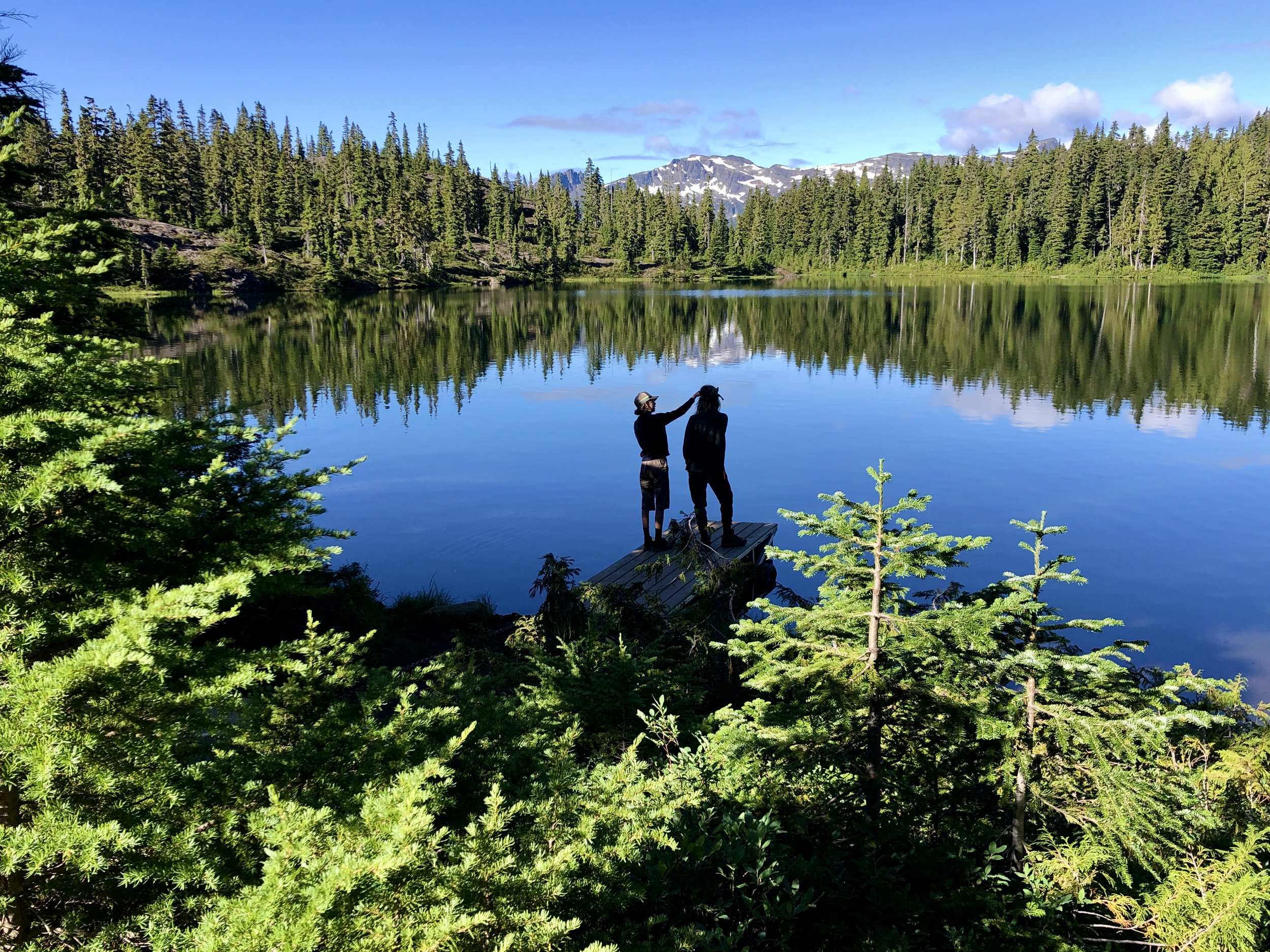
Mission & Purpose
We are the ones who…
Listen for the quietest sound, run barefoot through the trees, wipe mud on our faces, stand under waterfalls, wake up at dawn to hear bird song, carve creatures from cedar, pinch pots out of clay, sit in the rain because it makes us laugh, speak deep gratitude.
The Big Picture
We all come from a lineage where our ancestors intimately knew the trees, rivers, plants, and animals for everything that sustained and nourished their lives. These relationships infused their cultural belonging to place and brought wisdom and purpose to caring for the land and each other. Reciprocity was necessary and commonplace. Nature was never taken for granted.
These relationships with trees, birds, plants, animals and each other anchored us into a kind of respectful, rooted belonging that most of us don’t experience in our modern world today.
A lot has happened since those times. Centuries of being displaced and displacing others has resulted in broken cultural lines, lost wisdom and knowledge of the land, and disconnection from the deeper knowings of who we are.
Most of us have forgotten simple skills like how to build a fire from the land or which plants are safe to eat and which are toxic. We’ve forgotten how to listen to the quietest sound, to hear a song in the trees or see the universe in a grain of sand.
But what if we could remember?
What if getting to know the rivers, the plants, the birds and the animals would help us find our place again?
What if re-entering the Earth through tending a fire, foraging for wild food, or shaping clay with our bare hands could bring us more fully into ourselves and our relationships with nature and community?
At Thriving Roots, we reintegrate skills, stories, music, and soul back into our lives every day. We’re building bridges to the lost parts of ourselves that long for land-based connection and deeper belonging. We may not live to see the world we want to live in, but we’re building it one connection at a time.
We acknowledge that we live and work on unceded Coast Salish Territories*, specifically of the Lekwungen and W_SÁNEC peoples in the so called Victoria area. We wish to acknowledge our place as settler descendants; that many of our ancestors came to these lands through the ongoing process of violent dispossession and colonialism. We recognize that we are not immune to past and ongoing colonial processes.
We endeavour to honour the land and its treaties by strengthening our relationship and responsibilities to them. We aim to use our diverse privilege to provide people with experiences of humbly rediscovering nature as their first home and foundation, and believe this will ultimately lead to deeper personal and cultural healing for all. Our ultimate intention is to heal broken relationships between people and land and believe decolonizing ourselves and our systems is paramount to fulfilling this goal.
As an organization, we are committed to an ongoing learning journey of identifying and challenging the dominant colonial narratives and dynamics that can exist within this work and that are upheld by those of us with white settler privilege. We have been actively developing meaningful relationships with Elders and Knowledge Keepers from both the Cowichan Nation and the W_SÁNEC Nation and invite all voices and participation in our collaborative journey towards repair. We humbly work with these indigenous leaders for guidance and council in our work and have received tremendous support from them. We are working to decolonize and diversify our leadership team and are grateful to Abraham Pelkey, a local Tsawout knowledge keeper, for joining us.
Some of the practices we use have been generously shared with us through the 8 Shields lineage with the goal of preserving and enriching universal connection and culture. We aim to honour the specific indigenous people and lineages behind these teachings through keeping their teachings alive, and acknowledge their origins in our programming. You can read more about them here on Our Story.
* The term Coast Salish is used to encompass a number of Indigenous peoples, includingEsquimalt, Hul’qumi’num, Klahoose, Lekwungen (Songhees), MALAXEt, Musqueam, OStlq’emeylem, Pentlatch, Scia’new (Beecher Bay), Sliammon, Shishalh, Skxwú7mesh-ulh Úxwumixw, Stó:lo, Straits, Tsleil-Waututh, T’Sou-ke, W_SÁNEC (Pauquachin, Tsartlip, Tsawout, Tseycum), and Xwemalhkwu.

